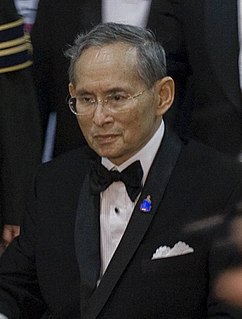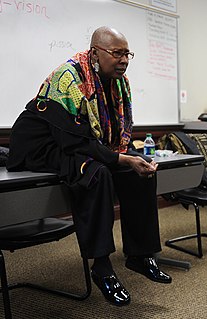A Quote by Hilary Kornblith
I don't know whether I can say that having a career in philosophy has turned out as I imagined, since in many ways I had little idea of what such a life would be like. But philosophy is still tremendously exciting to me, and the opportunity to think, and talk, and write about these issues has been wonderful.
Related Quotes
I would say that by being irresponsibly disorganized, by saying yes to everything and then seeing how it all works out, that I end up in some place closer to where I had imagined I would be, before I started to study philosophy, than I would ever be had I followed through in any sort of responsible way, and become the professor of philosophy that I shudder to think I might potentially have become.
I drifted into a career in academic philosophy because I couldn't see anything outside the academy that looked to be anything other than drudgery. But I wouldn't say I 'became a philosopher' until an early mid-life crisis forced me to confront the fact that, while 'philosophy' means 'love of wisdom', and 'wisdom' is the knowledge of how to live well, the analytic philosophy in which I had been trained seemed to have nothing to do with life.
I would say to anybody who thinks that all the problems in philosophy can be translated into empirically verifiable answers - whether it be a Lawrence Krauss thinking that physics is rendering philosophy obsolete or a Sam Harris thinking that neuroscience is rendering moral philosophy obsolete - that it takes an awful lot of philosophy - philosophy of science in the first case, moral philosophy in the second - even to demonstrate the relevance of these empirical sciences.
Work on causal theories of knowledge - early work by Armstrong, and Dretske, and Goldman - seemed far more satisfying. As I started to see the ways in which work in the cognitive sciences could inform our understanding of central epistemological issues, my whole idea of what the philosophical enterprise is all about began to change. Quine certainly played a role here, as did Putnam's (pre-1975) work in philosophy of science, and the exciting developments that went on in that time in philosophy of mind.
Certain issues in philosophy of science (having to do with observation and the definition of a theory's empirical import) had beenmisconstrued as issues in philosophy of logic and of language. With respect to modality, I hold the exact opposite: important philosophical problems concerning language have been misconstrued as relating to the content of science and the nature of the world. This is not at all new, but is the traditional nominalist line.
In many ways, the effort to study philosophy was my rebellion away from medicine. I'm the son of two Indian immigrant physicians, so the natural path for me would have been to become a doctor. I ended up doing the master's degree at Oxford in politics, philosophy, and economics while already having a seat in medical school. I was keeping that as my escape hatch. But my hope was that I might become a philosopher or something else entirely.
I feel like [throughout] my entire career and life, that I've been judged by people who really did not know me. But I definitely think that they probably were right to assume what they had assumed about me, because there was so little to go on out there. If you only see videos of me being crazy and hearing little things here and there, then obviously you're not going to have any idea who I really am.
There is a truth in Schopenhauer’s view that philosophy is an organism, and that a book on philosophy, with a beginning and end, is a sort of contradiction. ... In philosophy matters are not simple enough for us to say ‘Let’s get a rough idea’, for we do not know the country except by knowing the connections between the roads.
Many people entertain the idea that Christianity,like almost any other religion,is basically a system of beliefs-you know, a set of doctrines or a code of behavior, a philosophy, an ideology. But that's a myth. Christianity is not at all like Buddhism or Islam or Confucianism. The founders of those religions said (in effect), 'Here is what I teach. Believe my teachings. Follow my philosophy.' Jesus said, 'Follow me'(Matthew 9:9). Leaders of the world's religions said, 'What do you think about what I teach?' Jesus said, 'Who do you say I am?'(Luke 9:20)
I've never been pigeonholed and I've experienced so many different kinds of skin - what man will do and won't do, what you should do and shouldn't do. This is what's exciting about being an actor; where philosophy majors sit in classrooms or write books about human behavior, we're actually acting them out in front of cameras.
Marvin Gaye said there's a song inside of me and I can't get it out. And I know it's in there, and I can feel that it's in there, and I can't get it out. There's so much that I want to say, and I haven't been able to figure out how to say it in my art. I can only say it in ham-fisted, clumsy, nonpoetic ways, and I'm trying to figure out how to talk about life and talk about love and talk about pain and trials and tribulation in an artistic form.
I think Robert Altman could see things in me that I didn't know I possessed, which is really exciting. He also instilled a tremendous amount of confidence, because he would say things like, "These are the bare bones, but I want you to go fill it out. You find the character. You bring it to me. You write whatever you want." And if you had an idea, he wouldn't want to hear about it. He's want you to show it to him.
My wonderful editor, Jackie Onassis, asked me to write a book that I wanted to write. I said, 'Look, it's not going to be scandalized. I'm not going to talk about anybody like a dog. I'm going to say the positiveness of my life, and talk about those who have contributed to the way I've been going, and that's that.'
Philosophy - reduced, as we have seen, to philosophical discourse - develops from this point on in a different atmosphere and environment from that of ancient philosophy. In modern university philosophy, philosophy is obviously no longer a way of life, or a form of life - unless it be the form of life of a professor of philosophy.
































